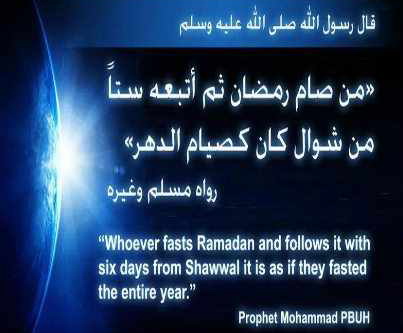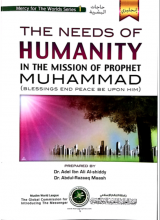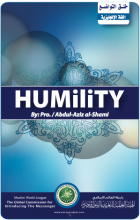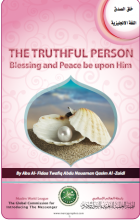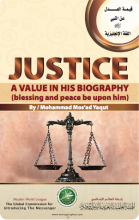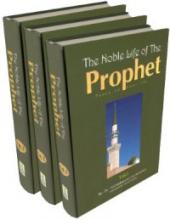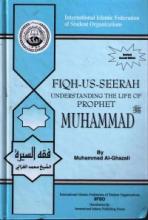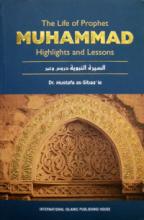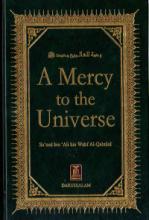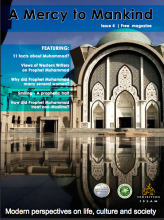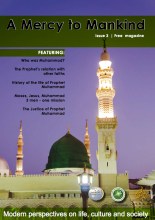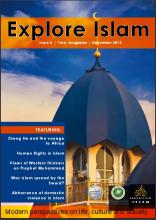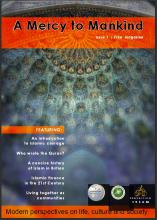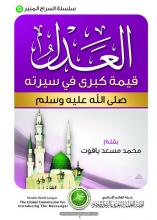Since the consequences of false religion are so grave, the true religion of Allah must be universally understandable and attainable, not confined to any people, place or time. There can not be conditions like baptism, belief in a man, as a saviour etc., for a believer to enter paradise. Within the central principle of Islam and in its definition, (the surrender of one's will to God) lies the roots of Islam's universality.
The Prophet of Mercy Website
Muslim World League - Global Commission for Introducing the Messenger
In Islam, the term ‘ibadah (service, worship) does not merely signify the ritualistic activities such as Salah (ritual Prayer), fasting, Zakah (obligatory alms) or Hajj (pilgrimage to Makkah). It includes all the activities of a believer that are in accordance with the laws of Allah (God). When a Muslim performs all the activities of his life for the pleasure of Allah, then all his deeds become ‘ibadah or worship. Naturally this includes his ritualistic worship, such as prayer, as well.
The Quran, the last revealed word of God, is the primary source of every Muslim’s faith and practice. It deals with all the subjects which concern human beings: wisdom, doctrine, worship, transactions, law, etc., but its basic theme is the relationship between God and His creatures. At the same time, it provides guidelines and detailed teachings for a just society, proper human conduct, and an equitable economic system.
(1) Intimate:
It dares you to disprove it. How? It says that humans can not write a book like this even if they pooled all their resources together and got help also from the spirits. The Quran said this fourteen hundreds years ago and yet no one has been able to disprove it. Billions of books have been written - but not another one like the Quran.
(2) Incorruptible:
The Qur’ân is the name given to Allah’s speech that He revealed to His Servant and Messenger Muhammad (may the peace and blessings of Allah be upon him); speech that is recited as an act of worship, is miraculous, and cannot be imitated by man. It is the name of Allah’s Book, and no other book is called by this name. The most common names for Allah’s Book are al-Qur’ân (the Recital) and al-Kitâb (the Book).
There are hundreds of religions flourishing around the world: Christianity, Islam, Buddhism, Sikhism, Hinduism, Judaism, Bahaism, Babism, Zoroastrianism, Mormonism, Jehovas Witnesses, Jainism, Confucianism etc. And each of these religions claim that their scripture is preserved from the day it was revealed (written) until our time. A religious belief is as authentic as the authenticity of the scripture it follows. And for any scripture to be labeled as authentically preserved it should follow some concrete and rational criteria.
Imagine this scenario:
Shaykh Muhammad Jameel Zeeno
Allaah the Most High says:
"Indeed in this there is a remembrance for those who have a living heart, listen attentively and are awake to taking heed." [Qaaf: 37]
Therefore, if you desire to benefit from the Qur'aan, gather your heart when reciting it, focus your attention to it and focus as if you are the one being directly addressed by it. For indeed it is an address from Allaah via the path of the Messenger sallallaahu `alayhi wa sallam.
Dr. Abu Ameenah Bilal Philips
(IslamWeb) By Waqar Ahmad Husaini
Only one Qur'anic verse alludes to the physiological effects of ascending in "the sky." The Qur'anic key words and concepts include: heart, bosom; ascending; sky; punishment; restricted, narrow, hence difficult; constricted, straitened, hence troubled; the people who seek admonition or remembrance from God's signs.

